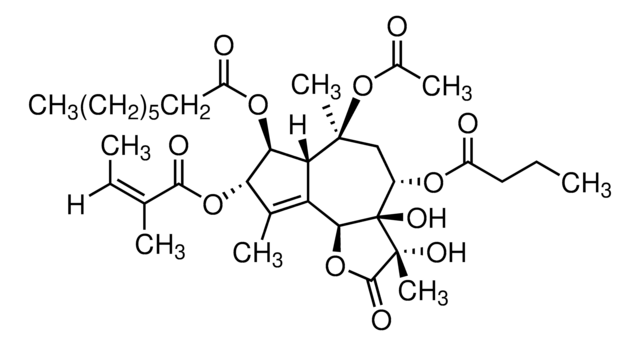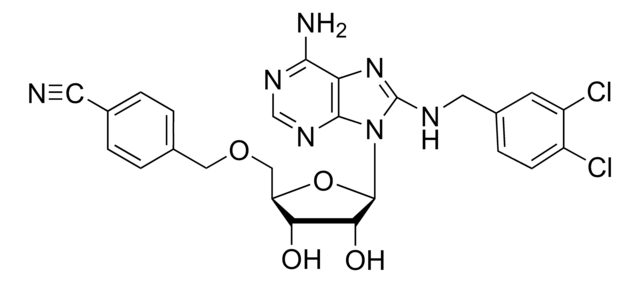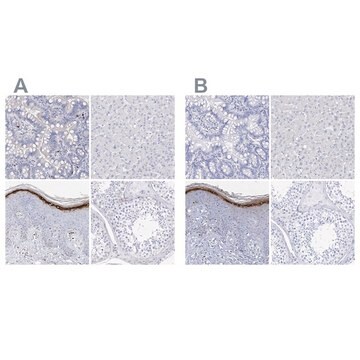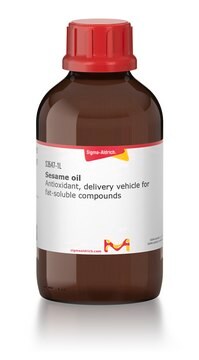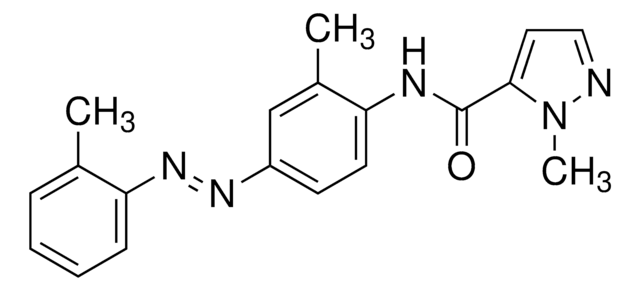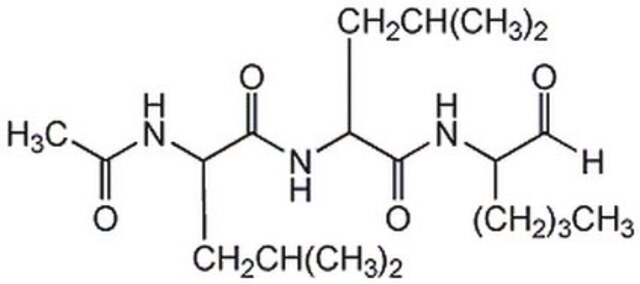SML0964
KNK437
≥98% (HPLC)
Synonym(e):
3-(1,3-Benzodioxol-5-ylmethylene)-2-oxo-1-pyrrolidinecarboxaldehyde
About This Item
Empfohlene Produkte
Qualitätsniveau
Assay
≥98% (HPLC)
Form
powder
Farbe
white to beige
Löslichkeit
DMSO: 5 mg/mL, clear (warmed)
Lagertemp.
room temp
SMILES String
N1(CCC(=Cc2cc3c(cc2)OCO3)C1=O)C=O
InChI
1S/C13H11NO4/c15-7-14-4-3-10(13(14)16)5-9-1-2-11-12(6-9)18-8-17-11/h1-2,5-7H,3-4,8H2
InChIKey
LZGGUFLRKIMBDQ-UHFFFAOYSA-N
Verwandte Kategorien
Anwendung
- as a heat shock factor 1 (HSF1) inhibitor to study its effects on the inhibition of viability and apoptosis activation in chemoresistant mice cells
- as an HSF1 inhibitor to study its effects on viability and apoptosis of colorectal cancer cells
- as a heat shock protein 70 (HSP70) inhibitor to study its effects on glutamine-induced HSP70 and inflammatory mediator release
Biochem./physiol. Wirkung
Lagerklassenschlüssel
11 - Combustible Solids
WGK
WGK 3
Flammpunkt (°F)
Not applicable
Flammpunkt (°C)
Not applicable
Hier finden Sie alle aktuellen Versionen:
Analysenzertifikate (COA)
Die passende Version wird nicht angezeigt?
Wenn Sie eine bestimmte Version benötigen, können Sie anhand der Lot- oder Chargennummer nach einem spezifischen Zertifikat suchen.
Besitzen Sie dieses Produkt bereits?
In der Dokumentenbibliothek finden Sie die Dokumentation zu den Produkten, die Sie kürzlich erworben haben.
Kunden haben sich ebenfalls angesehen
Unser Team von Wissenschaftlern verfügt über Erfahrung in allen Forschungsbereichen einschließlich Life Science, Materialwissenschaften, chemischer Synthese, Chromatographie, Analytik und vielen mehr..
Setzen Sie sich mit dem technischen Dienst in Verbindung.